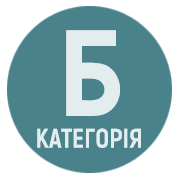THE MECHANISM OF CROSS-BORDER COOPERATION OF ENTREPRENEURIAL STRUCTURES IN THE SPHERE OF ENERGY EFFICIENCY
Abstract
The possibilities of implementing the conceptual provisions of the theory of cross-border cooperation (CBC) of entrepreneurial structures in the sphere of energy efficiency are investigated in this article. For the СBC, a mechanism has been proposed, procedures for determining have been formalized, and numerical calculations of CBC parameters have been carried out, which opens up new opportunities for business expansion. Energy efficiency (EE) has been selected, as a sphere of economic activity of business entities, that is recognized today as one of the main resources that provides sustainable economic development of the countries of over the world. When implementing EE’s measures, the business entities — consumers of fuel-and-energy resources (FERs) (these are industrial enterprises, public organizations, households, etc.) use less FERs to provide the same energy needs for technological and residential purposes (heating, cooling, lighting, etc.). As a result, they save not only energy, but also monetary resources, while reducing emissions of pollutants into the environment. Cross-border cooperation significantly expands the opportunities of increasing the technical and economic efficiency of FERs use in industrial and public sectors of the economy of the cooperating countries. In modern conditions, these opportunities are realized through systemically coordinated interaction of entrepreneurial structures with specialized energy service companies (ESCO), financial and investment institutions, and state authorities. Involving the ESCOs bring to clients (business entities) the strategic upgrade and innovative technical and technological development. Herewith, ESCOs take the risks and provide guaranteed energy savings that allow their clients reducing the operating costs and replacing outdated equipment, thus mitigating adverse impact on the environment. Moreover, all of these are realized without client’s upfront capital expenses. Model calculations of the advantages of business entities as the boundaries of expanding their production opportunities through the CBC showed an increase in the number of manufactured equipment in 1.27 times. In monetary terms, it can save 31.8 % of initial investment.
References
Ковалко О. М. Новосельцев О. В., Євтухова Т. О. Вертикально-інтегровані структури управління ефективністю функціонування систем комунальної теплоенергетики. Київ: Інститут технічної теплофізики НАН України, 2017. 258 с.
Energy Efficiency as a Resource. San Francisco: Advanced Energy Economy, 2018. 12 p.
Energy Efficiency Progress Report: 2017 assessment of the progress made by Members States towards the national energy efficiency targets for 2020 and towards the implementation of the Energy Efficiency Directive as required by Art. 24(3) of the Energy Efficiency Directive 2012/27/EU. Brussels: EU Commission, 2017. 17 p.
Kovalko O. M., Novoseltsev O. V., Boublik V. V. The Ricardian Model of Energy Service Companies Transboundary Cooperation // Socio-Economic Research Bulletin of Odessa National Economic University. 2013. Issue 2(49). part 1. P. 202–209.
Hansen S., Bertoldi P., Langlois P. ESCOs Around the World: Lessons Learned in 49 Countries. Atlanta: Fairmont Press, 2009. 200 р.
Kovalko A., Evtukhova T., Novoseltsev A. ESCOs and Cross-Border Energy Services: Ideas for International Cooperation // Washington: Proceedings of 36 World Energy Engineering Congress, September 25–27, 2013. Atlanta: AEE, 2013. Ch. 75. – P. 1–9.
Krugman P. R., Obstfeld M., Melitz M. J. International Economics: Theory & Policy. Boston: Pearson Education, 2012. 701 p.
Katila R., Chen E. L., Piezunka H. All the Right Moves: How Entrepreneurial Firms Compete Effectively // Strategic Entrepreneurship Journal, 2012. № 6. P. 116–132.
Guo R. Cross-Border Resource Management. Amsterdam: Elsevier, 2018. 472 p.
Sorrell S. The Economics of Energy Service Contracts // Energy Policy. 2007. Vol. 35. № 10. P. 507–521.









